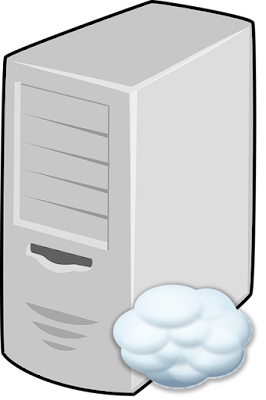- Get link
- Other Apps
- Get link
- Other Apps
In the fast-paced world of web hosting, choosing between solid state drive (SSD) and hard disk drive (HDD) technology is an important decision that can significantly impact a website's performance and user experience. SSD hosting has emerged as a game-changer, offering myriad benefits over traditional HDD hosting. In this article, we will explore the key benefits of SSD hosting and why it has become the preferred choice for businesses and individuals.
Blazing Fast Speed:
The most notable benefit of SSD hosting is the incredible speed it brings to the table. Unlike HDDs, which rely on spinning disks and mechanical read/write heads, SSDs use flash memory to store and retrieve data. The absence of moving parts results in data access speeds that are dramatically faster. Websites hosted on SSD servers load faster, ensuring a smooth and responsive user experience. Faster loading time not only increases user satisfaction but also contributes to better search engine rankings, as site speed is an important factor in search algorithms.
Better Performance and Responsiveness:
The inherent speed of SSDs translates into better overall performance and responsiveness. Applications and websites hosted on SSD servers respond instantly to user interactions, reducing latency and providing a seamless browsing experience. Be it an e-commerce platform, a content-heavy blog, or a dynamic web application, SSD hosting ensures that data retrieval and processing is fast while optimizing the performance of the hosted services.
Enhanced Reliability and Durability:
SSDs contain no mechanical components, making them more reliable and durable than their HDD counterparts. The absence of moving parts reduces the risk of mechanical failure, which is a common concern with traditional hard drives. This increased reliability is especially important for businesses that rely on consistent and uninterrupted web hosting services. SSDs are better equipped to handle shocks, vibrations, and temperature fluctuations, ensuring a more robust and stable hosting environment.
Low Energy Consumption:
SSDs consume less power than HDDs because they do not require power to rotate the disk or move the read/write heads. This results in lower energy bills for hosting providers and contributes to a more eco-friendly hosting solution. As businesses increasingly focus on sustainability and energy efficiency, the low power consumption of SSD hosting is in line with these environmental considerations.
Better Scalability:
SSD hosting facilitates scalability by handling increased workloads more efficiently than HDDs. As websites and applications grow, the demand for quick and reliable data access becomes paramount. SSDs can accommodate high levels of traffic and resource-intensive tasks, ensuring that the hosting infrastructure can scale seamlessly to meet the growing needs of the hosted content.
In the ever-evolving landscape of web hosting, the benefits of SSD hosting over HDD hosting are clear and compelling. The superior speed, performance, reliability and scalability of SSDs make them the preferred choice for individuals, businesses and enterprises seeking hosting solutions that can meet the demands of the modern digital age. As technology advances, SSD hosting stands as a testament to the ongoing search for faster, more efficient, and reliable web hosting services.

Comments
Post a Comment